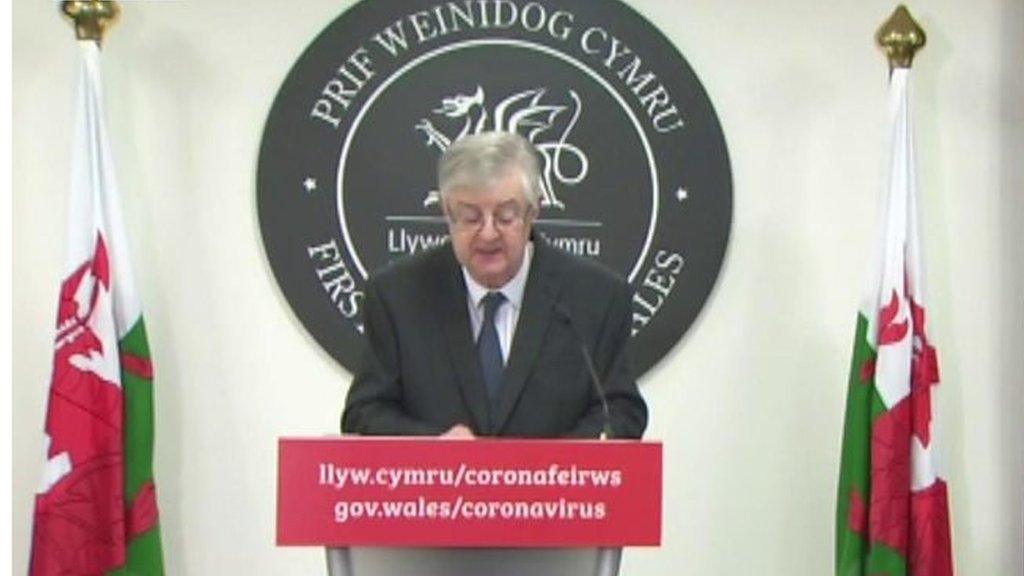Coronavirus: Warning over easing lockdown measures too quickly
- Published
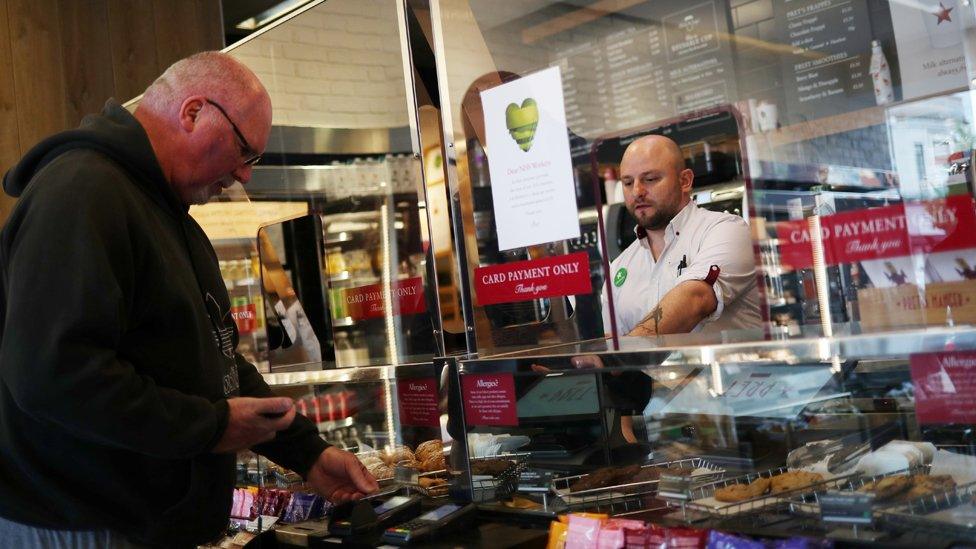
Protective screens are among alternatives to social distancing suggested in a draft document
Coronavirus will "come back with a vengeance" if lockdown measures are eased too quickly, Wales' chief scientific adviser for health warned.
Dr Rob Orford said a "very careful, cautious approach" was required.
First Minister Mark Drakeford said Wales is "past the peak" of the Covid-19 crisis as ministers are set to review stay-at-home restrictions.
Wales has had 1,000 coronavirus deaths and 10,000 confirmed cases and Dr Orford said further peaks were likely.
"The risk of a second and third (Covid-19) wave are ever-present," he said.
Some stores have already partially reopened while some people and businesses want to get back to work after six weeks in lockdown - but Dr Orford and clinicians on the NHS front line are warning against a significant easing of the lockdown.
"We don't know the prevalence of the infection - we don't know if people have a lower risk if they've been exposed and have become ill from coronavirus," said Dr Orford, who is a member of the Scientific Advisory Group for Emergencies (Sage), the scientific body shaping the UK government's coronavirus response.
"So there are some key questions that we need to answer as we edge our way forward."
He said if we "throw the doors wide open", the virus could "come back with a vengeance".
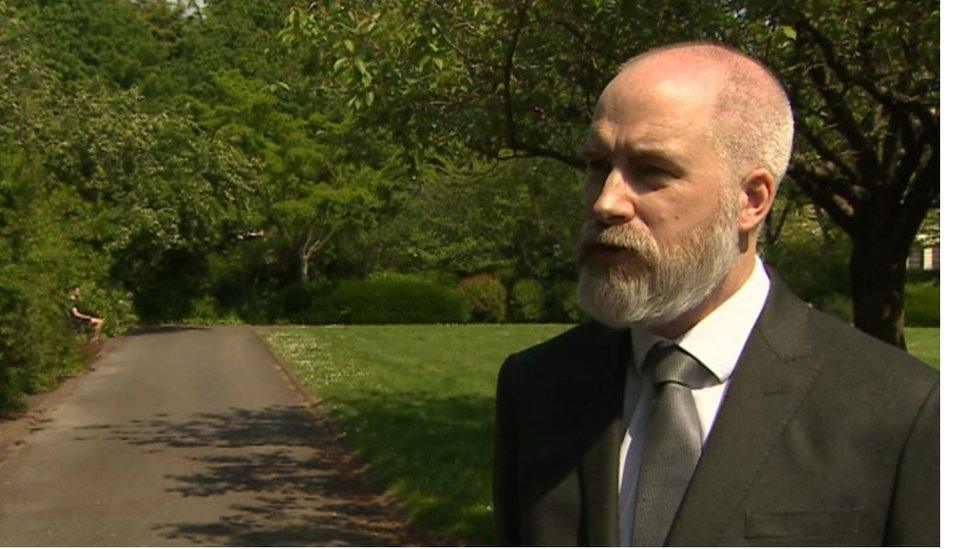
Dr Rob Orford believes a cautious approach should be taken to coming out of lockdown
Dr Orford said surveillance measures would also need to be in place to track and trace ongoing infections as a surveillance strategy and talk of easing restrictions are happening "hand in hand".
"A complex set of calculations and policy decisions need to go on," he said.
"We're working very closely at a UK level and looking overseas at international efforts so we can learn from others."
Deployment of a smartphone app to track and trace people with symptoms - currently being trialled on the Isle of Wight - is being considered in England alongside other "technological innovations". The Welsh Government is also considering adopting it.
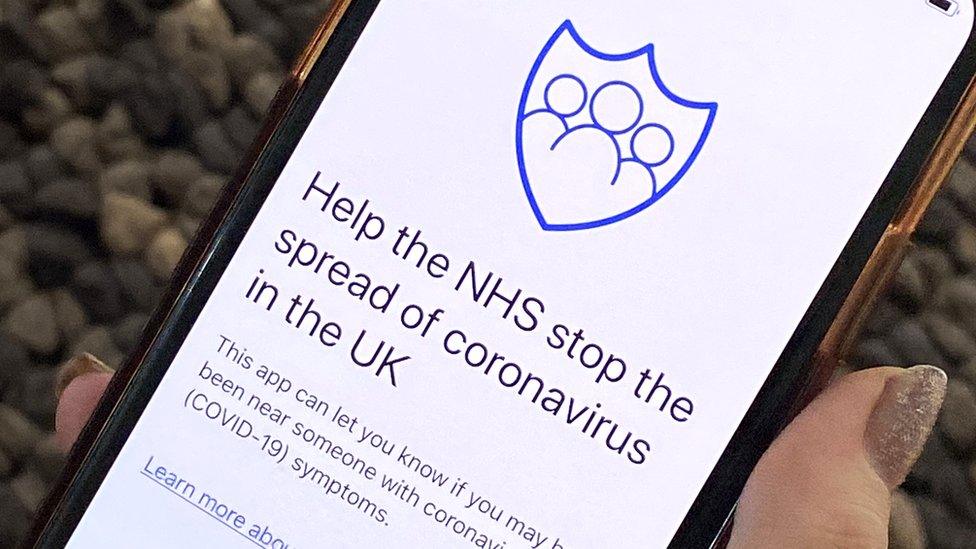
A phone app could be used to track coronavirus
On whether schools and nurseries should be among the first parts of society to reopen, Dr Orford said there was an increasing amount of evidence suggesting the virus had less impact on younger age groups.
He said: "You can probably conclude from that they would be the best group to look at first."
However, he said there was less certainty about the role of children in transmission of the disease.
"We need to carefully look at what other countries are doing to make sure we not only reduce the direct impact of coronavirus on children but also think about the indirect harms closing schools will have on their future as well," he added.
The daily reduction of deaths and patients with Covid-19 in intensive care wards may tempt people to call for an ease of lockdown after six weeks of restrictions on going out and going to work which has meant many businesses have temporarily shutdown in a bid to stop the spread of the virus.
'Long way off beating it'
But Professor Judith Hall, a Cardiff-based consultant anaesthetist, said an easing of lockdown restrictions should be done "cautiously".
Prof Hall, who has an OBE for her services to medicine and was once named Welsh Woman of the Year, has been on the front line fighting Covid-19.
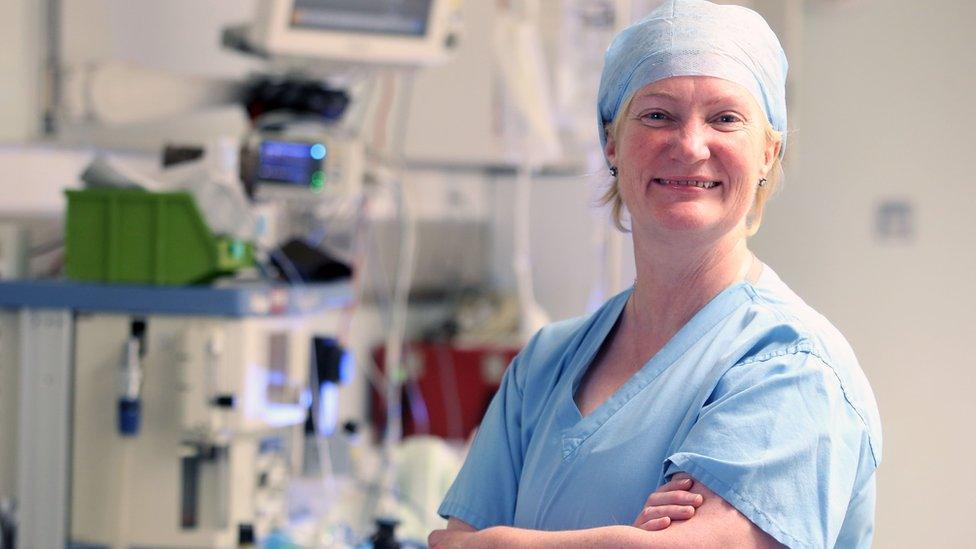
Professor Judith Hall won the Welsh Woman of the Year 2008-9 for her services to medicine
"This is about protecting lives," she said.
"It's our mothers, fathers and ourselves that could be put it risk. We need to extraordinarily cautious because we really do not yet know enough about this virus - and we're a long way off beating it.
"Just because the infection rate and the number of patients being admitted to intensive care are starting to come down, I think we can become far too complacent."
Prof Hall said she was hopeful that when the lockdown starts to unwind, people will act "very sensibly" and not "rush out to get-togethers and parties, because that's the problem".
She has seen for herself the impact on her colleagues as they treat the sickest Covid-19 patients at the University Hospital of Wales in Cardiff.
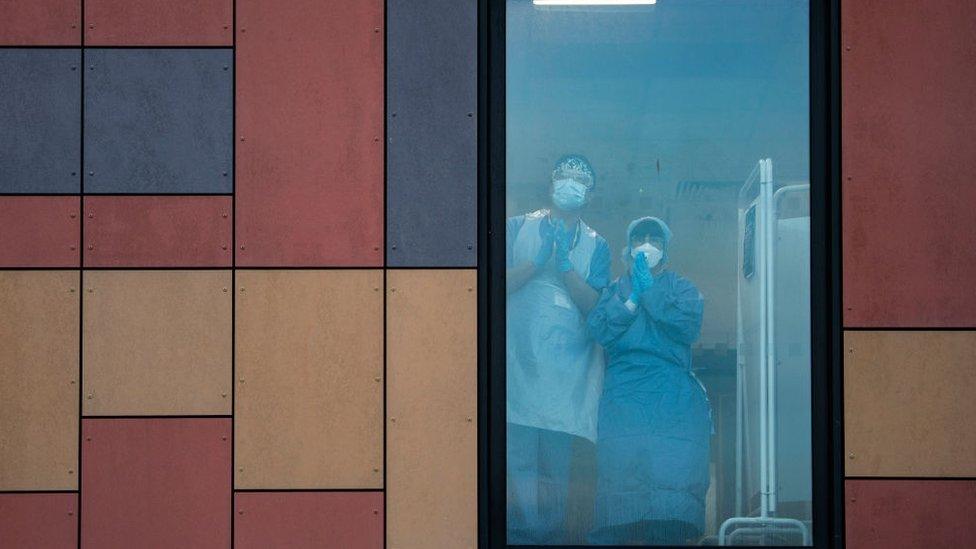
NHS workers across Wales and the UK have been fighting to save lives
Most of the 184 people who have died in the Cardiff and Vale University Health Board Trust area with Covid-19 died in hospital.
"The psychological toll on staff has been tremendous," said Prof Hall.
"People keep saying a second peak is inevitable but oh my goodness, please let's make that second peak as small as possible."
While the lockdown in Wales will be reviewed this week, First Minister Mark Drakeford has said he was in "broad agreement" with a draft UK government strategy for England, seen by the BBC.
He has also called for the four UK nations to ease restrictions according to a "common timetable".
However, Prof Hall said: "I don't think we should act at the same rate as England.
"We've a different population, we're older and more rural in general, so I think we should make our own decisions."

EASY STEPS: How to keep safe
A SIMPLE GUIDE: What are the symptoms?
GETTING READY: What is the UK's 'delay' phase?
TRAVEL PLANS: What are your rights?
IN-DEPTH: Coronavirus pandemic

- Published4 May 2020

- Published4 May 2020
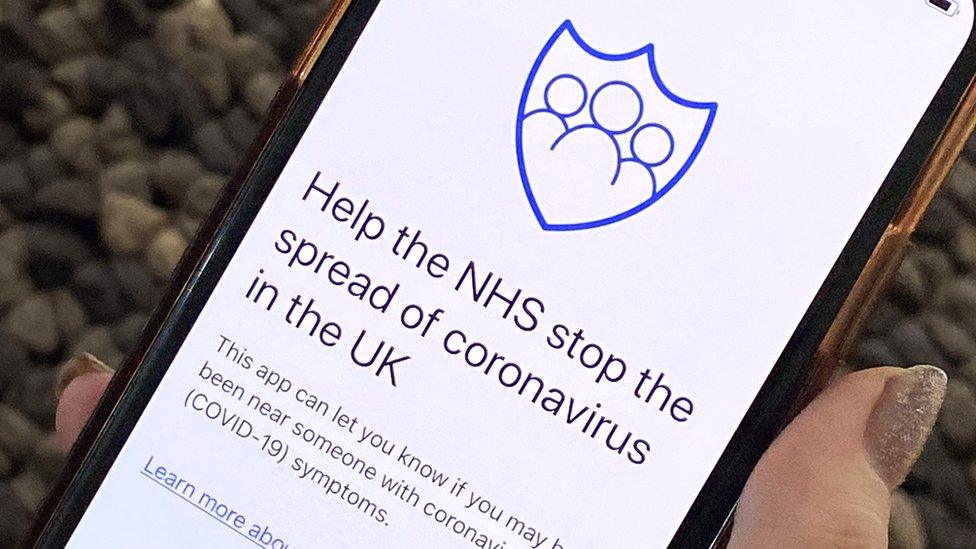
- Published4 May 2020
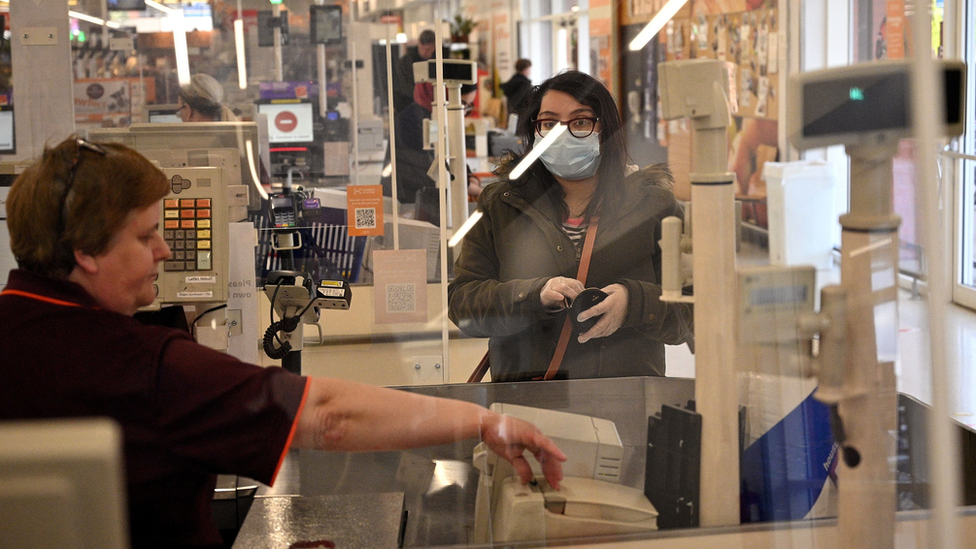
- Published4 May 2020
